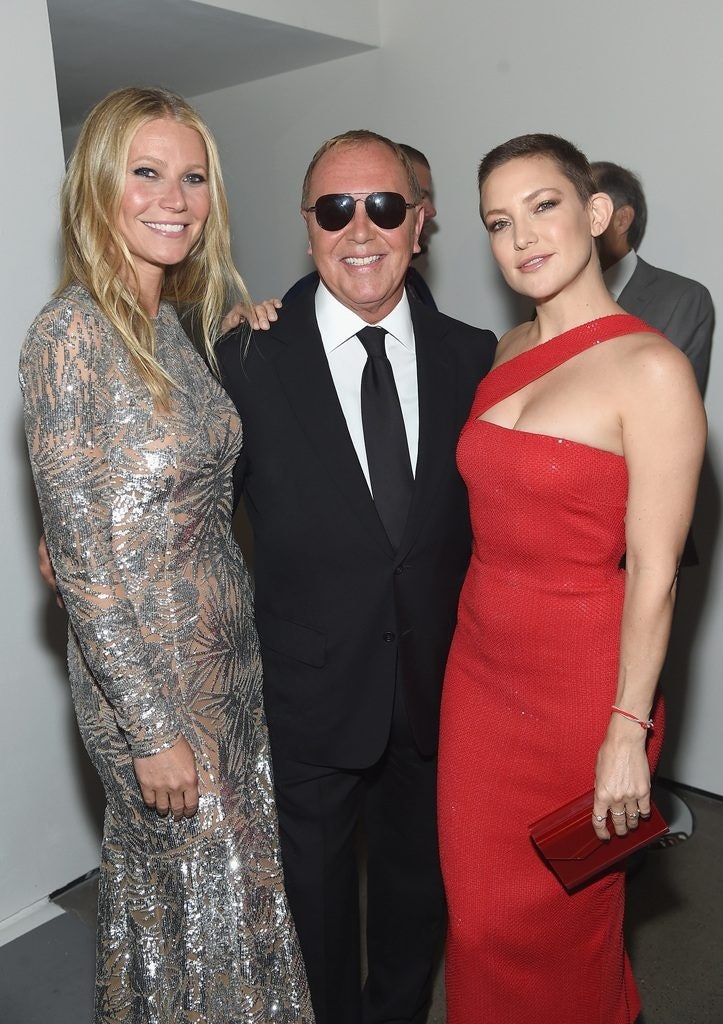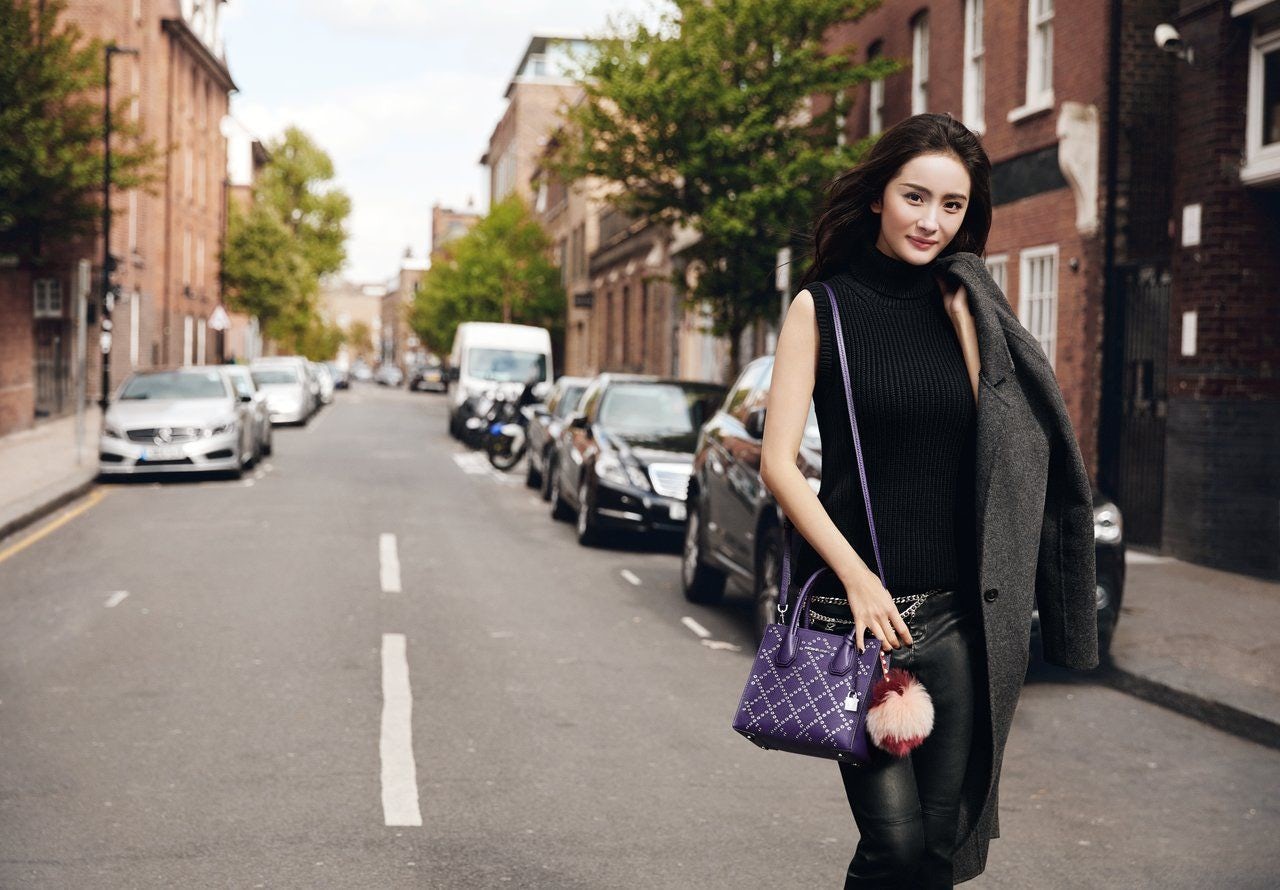Michael Kors Enlists Chinese Celebrities to Help Spread the Word About Watch Hunger Stop Campaign#
On October 16, otherwise known as World Food Day, we sat down with fashion icon Michael Kors and Hollywood actress Kate Hudson to talk about philanthropy. They teamed up this year in support of Kors’s campaign Watch Hunger Stop, which culminates this month in a worldwide social media effort involving some of the biggest Chinese stars, including brand ambassador Yang Mi.
Philanthropy is still a nascent topic in China where charitable giving, according to some measures, is only 4 percent of what it is in the US and Europe.
Michael Kors, which has been making great strides in China, one of its strongest markets, over the last several years, is doing its part to help boost philanthropy among its fans and clients such as with Watch Hunger Stop. The campaign, which is now in its fifth year, partners with the United Nations World Food Programme (WFP) to provide meals to schoolchildren. Thus far, the campaign has enabled the delivery of over 16 million meals and aims to reach 20 million by the end of the year. In June, Hudson traveled to Cambodia with WFP to see how the funds raised through the campaign help feed children there.
When asked about how he aims to nurture philanthropy in China, Kors harked back to the 1980s when philanthropy, which was dominated by lavish charitable events at which guests would come decked out in their most grandiose attire, had its share of detractors.
“There were people at the time who said, ‘Do you find it distasteful that to raise money, you have to have these big events, and people wear all these clothes,’” said Kors. “And I remember a friend of mine, her mom was very involved with a lot of philanthropic things. And her mother said, ‘You know what? It doesn’t matter why people go to the party. If they go and they just want to have their picture taken, that’s fine. We still raised money.”
“In places where you do not have a history of philanthropy, I think we can talk about wonderful product and the product can be the philanthropy. Start the conversation that way.”
The product, this year, is a special-edition Access Sofie touchscreen smartwatch and a black-and-cobalt-blue version of Michael Kors’s signature Lon aviator sunglasses. Each watch or pair of sunglasses sold at the brand’s stores or on its official websites anywhere in the world delivers 100 meals through WFP.
“The first thing is, ‘I love the watch. I love the glasses.’ And, ‘Wow, I’m able to make the contribution!’” he said. “That’s how we get the ball rolling, even if, in the beginning, it might not be why you get involved.”
Kors has long been involved in philanthropy. For over two decades, he has supported the New York-based God’s Love We Deliver (GLWD), an organization that delivers 6,000 nutritious meals daily to people who are too sick to care for themselves. GLWD was launched in the 1980s in response to the AIDS crisis, to which Kors lost many friends. On Monday night, Kors, along with honorary chairwoman Anna Wintour, hosted the organization’s annual gala, the Golden Heart Awards, a star-filled event at which celebrity chefs crafted canapés and cocktails. Gwyneth Paltrow, Jordan Roth, and Jon Gilman were recognized for their community service and volunteerism and by the end of the night, Calvin Klein had donated 1 million.

Philanthropy in China is Rapidly-Rising in the Era of Social Media#
Philanthropy is slowly catching on in China as some of its most visible players get noticed for their contributions.
Months before Chinese e-commerce company Alibaba went public in September 2014, its co-founders Jack Ma and Joseph Tai set up a charitable trust that they funded with a combined 50-million in share options, which, in early 2016, were worth 3.5 billion. Alibaba, along with China’s other tech giants, Tencent and Sina, all have mobile platforms that encourage giving by the public. In 2015, over 23 million people gave charitable gifts online. And this past March, when actress Fan Bingbing won a lawsuit for infringement, she donated the proceeds—150,000-yuan (23,000)—to kids in Tibet with congenital heart conditions.
According to a study released in June by Harvard University and Swiss bank UBS, between 2010 and 2016, donations from China’s top 100 philanthropists more than tripled to 4.6 billion. The report also noted that philanthropy in China is in a “state of expansion, experimentation and evolution,” according to the BBC, which had the story.
But while its big players are dipping their toe in philanthropy, the wider public is taking more cautiously to philanthropy due, some say, to the mistrust of private wealth on which much giving has relied as well as to scandal. In 2011, a young woman claiming to work for a company associated with the Chinese Red Cross made headlines for her extravagant lifestyle (the company denied any connection to her).
Another huge plus for educating the populace in philanthropy, according to Kors, who knows a thing or two about the power of social media for building awareness, is the connectedness fostered by travel and the internet. Since 2011, when the brand officially entered the Chinese market, it has spearheaded several innovative and well-received social media campaigns with popular Chinese celebrities, among them Victoria’s Secret supermodel Liu Wen, Yang Mi and actress Gao Yuanyuan.
“Just as [the internet] has taught all of us to get the same fashion information, well it can also give us all the same philanthropic information.”
“Everything we do in life is hopefully for the younger generation to be a better version of what we have been,” said Hudson who added that she hopes that by using their businesses and platforms to show how they’re “engaged in philanthropic efforts, taking what it is that we’ve earned and putting it back into communities that need them,” that this will instill the same values in the “next generation of children.”
“To be able to use all of the energy that you put into your own social media and to be able to get a message out there,” said Kors, “there couldn’t be a more fabulous way to be engaged.”



